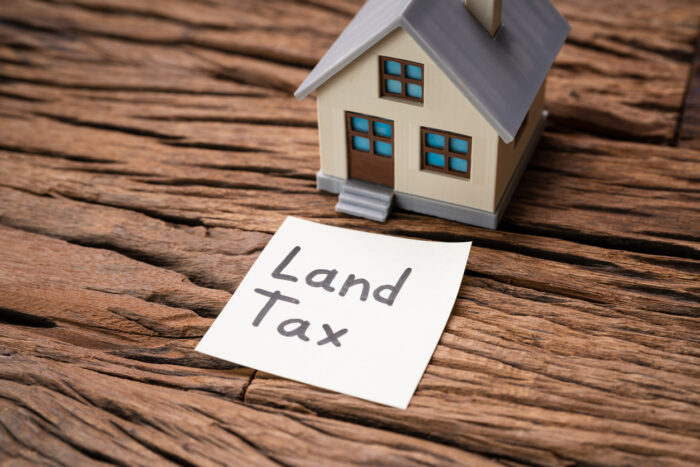Land Tax vs Stamp Duty
Land Tax vs Stamp Duty: What they are and how much they’ll cost you
With the right knowledge, you’ll be better equipped to manage these costs and make smart property decisions.

Understanding Land Tax and Stamp Duty in Australia
Whether you’re buying your first home, expanding your investment portfolio or managing your existing property, understanding land tax and stamp duty is crucial. These are two of the most significant property-related taxes in Australia, but they serve different purposes and can vary greatly depending on the state or territory you’re in.

What is Stamp Duty?
Stamp duty, sometimes referred to as “transfer duty,” is a one-time tax you pay when purchasing a property. Think of it as a fee for the government to register your ownership of the asset. This fee is generally paid upfront at the time of purchase, and the amount is calculated based on the value of the property and its location.
How much does Stamp Duty cost?
Stamp duty rates vary across Australia. It typically ranges from around 4% to 6% of the property’s value. Each state and territory has its own set of rules and concessions, particularly for first-time home buyers. Some areas also offer exemptions or discounts to certain groups, so it’s always a good idea to check the local guidelines before purchasing.
For example:
- In New South Wales, the rate is tiered based on the value of the property, with concessions for first-home buyers up to a certain price point.
- Victoria has similar scaling rates, with additional benefits for first-home buyers or people purchasing new homes.
Many buyers also have the option to add the stamp duty to their mortgage, but remember that this increases your loan size and interest costs over time.
What is Land Tax?

Unlike stamp duty, land tax is an ongoing tax applied annually to landowners. This tax is charged on the unimproved value of your land, meaning it doesn’t include the value of your house or other buildings. Land tax is often levied on investment properties, holiday homes, or other types of landholdings, but your principal place of residence (the home you live in) is typically exempt.
How much does Land Tax cost?
The cost of land tax also varies depending on which state or territory the land is in and how much land you own. Most states have a tax-free threshold, meaning you only pay land tax on land that exceeds a certain value.
Here are some examples:
- In Queensland, the land tax kicks in for individuals once the total value of taxable land exceeds $600,000. The more land you own, the higher the rate.
- In Victoria, the tax-free threshold is $300,000, and the rates increase as the value of your landholdings rise.
If you own multiple properties or large parcels of land, it’s essential to be aware of how land tax can impact your annual costs.
Land Tax vs Stamp Duty: Which will affect you?
- If you’re buying a property, you’ll need to pay stamp duty upfront, which can be a significant expense. However, you won’t have to worry about this again unless you buy another property.
- If you own investment properties or vacant land, you’ll likely be subject to land tax each year. This can add up over time, especially if the value of your landholdings increases or if the tax-free threshold in your state is low.
Some Australian states, like NSW, have recently been considering replacing stamp duty with a property tax (which works more like land tax), allowing buyers to opt for ongoing smaller payments rather than a large upfront stamp duty payment.
Getting the right advice
Navigating property taxes can be tricky, and the rules change frequently. It’s important to stay informed and seek professional advice when making decisions about property purchases or investments. So, make sure you understand the taxes that apply in your state and how they will impact your financial situation in both the short and long term.
Subscribe to our newsletter
The latest news, articles, and resources, sent to your inbox weekly.
Past performance is not indicative of future returns. Any information provided on this website has not considered the objectives, financial situation or needs of any investor; investors should consider whether it is appropriate to them to partake in a commercial property investment prior to investing, in light of their objectives, financial situation or needs. Every investor should obtain and consider the investment’s Information Memorandum before making a decision in relation to the investment.